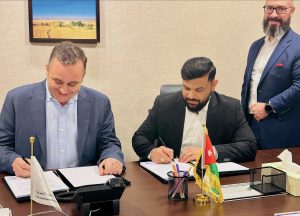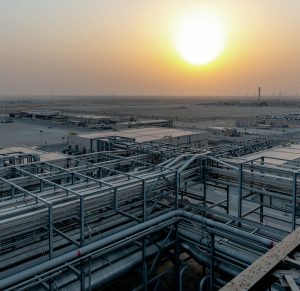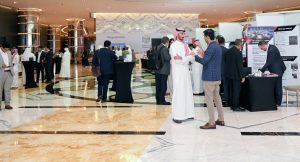
OCP Nutricrops unveils nine million tonne production boost
OCP Group subsidiary OCP Nutricrops has announced a major investment to expand its phosphate fertilizer production capacity by nine million tonnes by 2028.

OCP Group subsidiary OCP Nutricrops has announced a major investment to expand its phosphate fertilizer production capacity by nine million tonnes by 2028.

Metso has secured a contract with IDMI for a new phosphate beneficiation plant in Jordan.

Chinese phosphate and battery chemical producer Chuan Jin Nuo Chemical (KMCJNC) has announced a $265 million plan to build a plant in Egypt to reduce its raw material and export costs. The company will construct facilities in the North African country to produce a range of intermediates and finished products, it revealed in its recent first-quarter earnings report. The plant will have a threeyear construction timeline. Planned capacities for the site are 800,000 t/a of sulfuric acid and 300,000 t/a of ammonium phosphate per year. Other core products will include phosphoric acid and sodium fluorosilicate. At full capacity, the plant is expected to generate over $41 million in net profit, according to feasibility studies.

The Middle East remains the world’s largest regional exporter of sulphur, with additional capacity continuing to come from both refineries and particularly sour gas processing.

Metso has secured a two-year life-cycle contract with Ideal Development for Manufacturing Industries (IDMI) for a new phosphate beneficiation plant at the Eshidiya phosphate mine in the south of Jordan.

Axens says that it has completed the expansion of its Axens Catalyst Arabia Ltd site, aimed at providing local and regional partners with the latest tail gas treatment catalysts, in addition to the site’s legacy catalyst hydroprocessing manufacturing capacity. This makes Axens is the first and only company to produce tail gas treatment catalysts in the Middle East. The company says that the expansion consolidates its capacity to serve its regional customers to meet regulatory requirements and maximise sulphur recovery by up to 99.9%, minimising SOx emissions. The production site supplies the region’s refining and gas industries with the latest generation of Axens’ catalysts, capable of operating at lower temperatures than conventional catalysts, and resulting in lower energy consumption.

The Middle East’s premier event for the sulphur global industry, MEScon 2025, returns to the Conrad Abu Dhabi, Etihad Towers from 19 to 22 May 2025.

Axens Catalyst Arabia Ltd to manufacture Tail Gas Treatment Catalyst on newly expanded site

UAE-based chemicals and transition fuels hub TA’ZIZ has awarded an engineering, procurement, and construction (EPC) contract worth $1.7 billion to engineering company Samsung E&A to build the UAE’s first methanol plant. The facility will be located at the Al Ruwais Industrial City in the western part of the emirate of Abu Dhabi. It is projected to produce 1.8 million t/a green methanol, powered by clean energy from the grid, with the plant scheduled for completion in 2028.

In its 4Q 2024 results presentation, Abu Dhabi-based Fertiglobe said that it expects to reach a final investment decision (FID) on two clean hydrogen and ammonia projects in the US and Egypt in 2025. Fertiglobe confirmed that FID on the ADNOC-ExxonMobil low-carbon hydrogen and ammonia project in Baytown, Texas, is expected in 2025, with operations anticipated to begin in 2029. ADNOC’s 35% equity stake in the project will be transferred to Fertiglobe at cost once the project is operational.